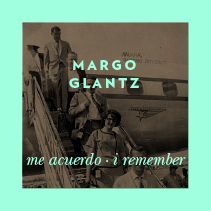Place: Gabriela Bejerman
We asked Gabriela Bejerman to write about an especially intriguing place she'd visited. She sent us this brief text on The Island, a sanctuary for "people running from the law, transvestites in search of peace, and hermit writers."
The Island
Photos submitted by author
There are many, but they refer to them as if it were only one: the island. It’s a great delta: rivers, creeks, and canals mark out a wild space half an hour away from the Argentinian capital. There are people who live there, and others who go to spend the weekend. You can hear a lot of Guaraní because a large part of the population there is Paraguayan. Many went to that territory to take shelter, people running from the law, transvestites in search of peace, hermit writers and others who simply found their place on the island. Some years ago I began renting a little mud hut, it’s white, the window frames yellow. It’s called “Proud Giraffe.”
One morning in March, I woke up and went walking through the country, by the Santa Rosa creek. The plants talked to me, the sky was all generosity, the light smiled as if it were greeting me. I knew then that happiness was close, it was there, and I decided to stay. Now I love sitting on the porch and reading, writing, and of course, drinking mate… There you realize that time goes by in the water of the rivers that goes up and down constantly, unpredictably. That’s how I learned that water “seeps in,” and that’s a source of joy: that’s how there’s water in the tanks, boats can navigate and the river isn’t empty but overflowing, satisfied.
The most sociable characters on the island are the dogs. Many of them don’t have an owner and are there because someone wanted to get rid of them. Every time I arrive, Chico shows up: black and beautiful, with a feather duster tail and brilliant teeth. He gallops towards me exultantly, cries out in joy when I start petting him how he likes it. In return, he gives me all his strength and something that resembles a smile. He barks along with the other dogs; there are fierce battles from one side of the creek to the other. Flash, the descendant of a German Shepherd, challenges him from the other side at maximum speed, and Chico, on this side, runs beside him. Another very pleasant dog who always finds someone to follow is Canela, also called Luna. Sure, since they have no owners, each person names them however they wish to; depending on where they are, their name changes. She is a fake Doberman, chubby and with droopy ears, willing to humiliate herself in order to get what she wants: food and company. She and Chico get along very well, it seems she adopted him as a son. Sometimes the three of us are at the dock; me, drinking the mate, and them, taking the sun. They always have mud on their paws, when they greet you they cover you in gray-colored clay footprints. But there’s also a bad, black dog who dares to go up to my porch and nothing scares him, on the contrary, he scares me. His hair is always sticking up and he has so much bad tempered electricity that he lives whining, almost crying out of anguish, as if saying: I need a ton of love to calm myself. But no one has the courage to love him.
Another favorite is Toto, the gentleman from the neighborhood. He sits on the dock and observes the ruckus the other ones make, without participating too much. He’s very good looking, with a bulky mane. He seems like a fifty year old man and he tolerates the racket of the others who are the equivalent of adolescents. Him I let come up to my house, but only to the little staircase. That he respects my limits shows how polite he is. By contrast, Chico never learned such manners. They abandoned him on the island and his lack of owner messed up his disposition. Once a nice lady chased him with a silver spray can, since he was hurt she wanted to put some “cura bichera” (another expression I heard) on him so that he wouldn’t get maggoty. The silly dog wouldn’t let her. Although many don’t care for Chico, they say he’s a bad dog that bites tourists and Paraguayans, I think he’s no xenophobe.
When we go for a stroll in Biguá, a countryside path which takes an hour and then some to walk, they all get excited and come with me. I cross the bridges, which are great big wooden logs. For their part, even if it’s cold they dive into the water and choose the closest place to my body to shake it off. When we’re in the middle of the country, without any sounds but those of the birds and the crunching of leaves, I’m part of the pack. And so, when the little houses appear again, the cumbias on the radio and the boats’ engines, I realize I’m something else: at some point in the walk, I was born again.
Other entries:
[Eduardo Halfon]
[Pilar Quintana]
[Mercedes Cebrián]
[Wilmer Urrelo Zárate]
[Ronaldo Menéndez]
The Island
Photos submitted by author
There are many, but they refer to them as if it were only one: the island. It’s a great delta: rivers, creeks, and canals mark out a wild space half an hour away from the Argentinian capital. There are people who live there, and others who go to spend the weekend. You can hear a lot of Guaraní because a large part of the population there is Paraguayan. Many went to that territory to take shelter, people running from the law, transvestites in search of peace, hermit writers and others who simply found their place on the island. Some years ago I began renting a little mud hut, it’s white, the window frames yellow. It’s called “Proud Giraffe.”
One morning in March, I woke up and went walking through the country, by the Santa Rosa creek. The plants talked to me, the sky was all generosity, the light smiled as if it were greeting me. I knew then that happiness was close, it was there, and I decided to stay. Now I love sitting on the porch and reading, writing, and of course, drinking mate… There you realize that time goes by in the water of the rivers that goes up and down constantly, unpredictably. That’s how I learned that water “seeps in,” and that’s a source of joy: that’s how there’s water in the tanks, boats can navigate and the river isn’t empty but overflowing, satisfied.
The most sociable characters on the island are the dogs. Many of them don’t have an owner and are there because someone wanted to get rid of them. Every time I arrive, Chico shows up: black and beautiful, with a feather duster tail and brilliant teeth. He gallops towards me exultantly, cries out in joy when I start petting him how he likes it. In return, he gives me all his strength and something that resembles a smile. He barks along with the other dogs; there are fierce battles from one side of the creek to the other. Flash, the descendant of a German Shepherd, challenges him from the other side at maximum speed, and Chico, on this side, runs beside him. Another very pleasant dog who always finds someone to follow is Canela, also called Luna. Sure, since they have no owners, each person names them however they wish to; depending on where they are, their name changes. She is a fake Doberman, chubby and with droopy ears, willing to humiliate herself in order to get what she wants: food and company. She and Chico get along very well, it seems she adopted him as a son. Sometimes the three of us are at the dock; me, drinking the mate, and them, taking the sun. They always have mud on their paws, when they greet you they cover you in gray-colored clay footprints. But there’s also a bad, black dog who dares to go up to my porch and nothing scares him, on the contrary, he scares me. His hair is always sticking up and he has so much bad tempered electricity that he lives whining, almost crying out of anguish, as if saying: I need a ton of love to calm myself. But no one has the courage to love him.
Another favorite is Toto, the gentleman from the neighborhood. He sits on the dock and observes the ruckus the other ones make, without participating too much. He’s very good looking, with a bulky mane. He seems like a fifty year old man and he tolerates the racket of the others who are the equivalent of adolescents. Him I let come up to my house, but only to the little staircase. That he respects my limits shows how polite he is. By contrast, Chico never learned such manners. They abandoned him on the island and his lack of owner messed up his disposition. Once a nice lady chased him with a silver spray can, since he was hurt she wanted to put some “cura bichera” (another expression I heard) on him so that he wouldn’t get maggoty. The silly dog wouldn’t let her. Although many don’t care for Chico, they say he’s a bad dog that bites tourists and Paraguayans, I think he’s no xenophobe.
When we go for a stroll in Biguá, a countryside path which takes an hour and then some to walk, they all get excited and come with me. I cross the bridges, which are great big wooden logs. For their part, even if it’s cold they dive into the water and choose the closest place to my body to shake it off. When we’re in the middle of the country, without any sounds but those of the birds and the crunching of leaves, I’m part of the pack. And so, when the little houses appear again, the cumbias on the radio and the boats’ engines, I realize I’m something else: at some point in the walk, I was born again.
Other entries:
[Eduardo Halfon]
[Pilar Quintana]
[Mercedes Cebrián]
[Wilmer Urrelo Zárate]
[Ronaldo Menéndez]








